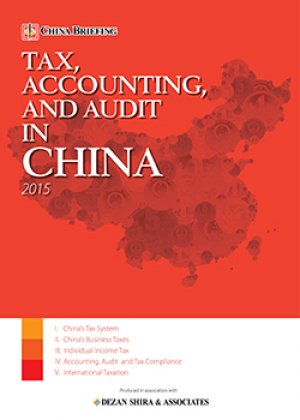China Regulatory Brief: Lifted Restrictions on Foreign-Invested Financial Leasing Companies
China Lifts Restrictions on Foreign-Invested Financial Leasing Companies
On March 23, China’s Ministry of Commerce (MOFCOM) released a draft revision of the “Measures for the Administration of Foreign Investment in the Leasing Industry,” which is currently open for public comment. A financial lease or equipment lease is a commercial arrangement where the lessor purchases an asset such as office equipment, vehicles or machinery and lends these to the lessee for a fee. Such an arrangement enables the lessee to use the leased equipment without having to purchase the asset outright or borrow money for that purpose. The fact that the lessor maintains ownership of the asset reduces the risk for the lessor, and thereby the cost for the lessee.
Most importantly, the draft version removes the minimum registered capital for foreign-invested financial leasing companies. According to the current rules, such companies must have a minimum registered capital of US$10 million.
China Clarifies CIT Issues for Integrated Circuit Companies
The General Office of the Ministry of Finance recently released the “Circular on Corporate Income Tax (CIT) Policies for Integrated Circuit Companies (Cai Shui [2015] No.6).” The Circular exempts eligible integrated circuit companies who are able to achieve profitability before 2017 from corporate income tax for the two years following the first profitable year. In the following three years they will be taxed half. Additionally, the integrated circuit company should meet the following requirements:
- The company is established in China after January 1, 2014.
- The number of employees who have associate degrees or above accounts for more than 40 percent of the company’s total number of employees; and the number of researchers and developers accounts for no less than 20 percent of the total number of employees.
- The company owns core technologies and conducts business on the basis of the core technologies; the total R&D costs accounts for no less than 5 percent of the total business income; and the R&D costs incurred in China shall account for no less than 60 percent of its total R&D costs.
- The business income derived from selling key materials of integrated circuit or manufacturing equipment should account for more than 30 percent of its total income.
![]() RELATED: China’s Tax Incentives for High-Tech Enterprises
RELATED: China’s Tax Incentives for High-Tech Enterprises
Netherlands Prime Minister Visits China to Strengthen Economic Ties
On March 24, Dutch Prime Minister Rutte officially launched his visit to China in Shanghai, aiming at strengthening the diplomatic and economic relationship between the Netherlands and China. More than 50 contracts and trade agreements have been signed during the visit. Mr Rutte also stated that the Netherlands would like to accede to Asian Infrastructure Investment Bank (AIIB), which was proposed by Chinese President Xi Jinping in October 2013. Witnessing a record bilateral trade volume of US$74.3 billion in 2014, the Netherlands isvChina’s third-largest European trade partner. To date, over a thousand Dutch enterprises have been established in China.
China Abolishes Administrative Approval Items for Accounting Firms
On March 19, China’s Ministry of Finance (MOF) announced its decision to abolish another five administrative approval items. Based on the decision, foreign (including Hong Kong, Macau and Taiwan) accounting firms will no longer be required to get pre-approval prior to the establishment of a permanent representative office. Meanwhile, a foreign accounting firm wishing to conduct business temporarily within China still needs to obtain pre-approval from the local finance department.
|
Asia Briefing Ltd. is a subsidiary of Dezan Shira & Associates. Dezan Shira is a specialist foreign direct investment practice, providing corporate establishment, business advisory, tax advisory and compliance, accounting, payroll, due diligence and financial review services to multinationals investing in China, Hong Kong, India, Vietnam, Singapore and the rest of ASEAN. For further information, please email china@dezshira.com or visit www.dezshira.com. Stay up to date with the latest business and investment trends in Asia by subscribing to our complimentary update service featuring news, commentary and regulatory insight.
|
![]()
 Tax, Accounting, and Audit in China 2015
Tax, Accounting, and Audit in China 2015
This edition of Tax, Accounting, and Audit in China, updated for 2015, offers a comprehensive overview of the major taxes foreign investors are likely to encounter when establishing or operating a business in China, as well as other tax-relevant obligations. This concise, detailed, yet pragmatic guide is ideal for CFOs, compliance officers and heads of accounting who must navigate the complex tax and accounting landscape in China in order to effectively manage and strategically plan their China operations.
 Industry Specific Licenses and Certifications in China
Industry Specific Licenses and Certifications in China
In this issue of China Briefing, we provide an overview of the licensing schemes for industrial products; food production, distribution and catering services; and advertising. We also introduce two important types of certification in China: the CCC and the China Energy Label (CEL). This issue will provide you with an understanding of the requirements for selling your products or services in China.
 Annual Audit and Compliance in China
Annual Audit and Compliance in China
In this issue of China Briefing, we discuss annual compliance requirements for foreign-invested enterprises, including wholly-foreign owned enterprises, joint ventures and foreign-invested commercial enterprises, as well as the less demanding requirements for representative offices. We also highlight the most recent tax and legal changes that will significantly influence the way companies do business in China in 2014.
- Previous Article China Regulatory Brief: CIT Incentives in Western China, Management Measures on Cosmetic Production
- Next Article China Regulatory Brief: New Rules for VAT General Taxpayers Status, Draft Amendments to Patent Law Released










